Bismart Data Integration Framework
Optimize Data Integration to Improve Business Decisions and Operational Efficiency

Explore all the technical features of the Bismart Data Integration Framework in the solution's datasheet.
Bismart Data Integration Framework is a data integration and migration platform designed to simplify and streamline data integration processes in corporate environments, particularly for ingestion and integration workflows using Azure Data Factory (ADF).
Unlike other data integration solutions, Data Integration Framework covers both data ingestion from source systems and data movement across the different layers of the data platform.
Developed by Bismart, the platform is built on Azure resources, orchestrated by Azure Data Factory, and configurable through metadata.
Are your data integration processes implemented in isolation, without a standardized or reusable method, leading to inefficiencies and management challenges?
Would you like your data integration processes to be based on a metadata model, reducing the need for technical expertise and simplifying their management and governance?
Do you need a solution that accelerates the development and deployment of your data integration processes?
Standardize and automate your data integration, reducing costs and enhancing process efficiency.
Data Integration Framework: How Does It Work?
Data Integration Framework enables the migration and transformation of data from multiple sources to multiple destinations, with the flexibility to define which objects to integrate and how to manage source reads, destination loads, and activation criteria for each ingestion process.
- Cost and Implementation Time Reduction: Particularly valuable for projects with a large number of tables, where process automation and standardization significantly reduce operational workload.
- Enhanced Data Control and Governance: The framework provides a comprehensive, centralized view of processes, making it easier to identify and resolve loading issues.
- Operational Efficiency: Optimized processes minimize component redundancy and duplication of loading logic, reducing the risk of errors.
- Guaranteed Scalability: A modular design and customizable capabilities enable the scaling of data integration processes as business needs evolve.
The solution has been designed to operate optimally in processes using SQL as well as Databricks, Snowflake, and Microsoft Fabric.
Data Integration Framework Architecture with Databricks

Data Integration Framework Architecture with SQL

Main Technical Features

100% Azure-Based Architecture
Seamless and scalable integration in any corporate environment

Multi-Tenant
Compatible with SQL processes as well as Databricks, Snowflake, and Microsoft Fabric

Metadata-Based Parameterization
that promotes an agile development and documentation of all processes

Comprehensive Integration
Covers both data ingestion from source systems and data movement across the different layers of the data platform

Customizable Automation
Allows configuration and automation of data loading processes based on specific needs

Process Standardization
in Azure Data Factory
Simplifies platform adoption for new team members
Data Integration Framework: Why Do You Need It?
Bismart's team of data integration experts has developed this solution to address the most recurring and complex challenges in data integration processes.
Contextualization: Challenges of Unstandardized Data Integration Projects
Data integration projects developed with Data Factory require control and a defined methodology; otherwise:
- Each project or solution is designed in isolation and independently, with the risks this entails.
- It easily leads to disorder and confusion.
- Difficulty in solution adoption by new users joining the project.
- Processes multiply to match the number of tables to load, resulting in duplicated load logic.
- Redundancy of components: linked services, datasets, copy activities, etc.High or oversized costs.
- Slow processes, often executed sequentially or with excessive parallelism.
- Limited data governance: difficulty identifying, locating, and resolving issues in data loads.
- Decentralized processes with little control.
- Misalignment between the "technical" load criteria and the "functional or business" load criteria.
Key Advantages of Bismart Data Integration Framework
- 100% Azure-based architecture: seamless and scalable integration into any corporate environment.
- Enables the standardization of data ingestion processes in Data Factory
- Reduces implementation costs (especially when dealing with a high number of tables)
- Decreases implementation, ingestion, and data transformation times
- Simplifies tool adoption when onboarding new team members, maximizes knowledge, and minimizes the learning curve.
- Streamlines and optimizes data loading processes from any data source (cloud or on-premise)
- Provides high flexibility and scalability for the platform
- Centralized monitoring of all processes
- Allows configuration of source reading and destination loading behaviors for each individual ingestion
- Enables the configuration and automation of loading processes based on specific needs.
- Metadata-driven parameterization that streamlines development and documentation of various processes.
- Includes mechanisms for automatic historization of changes in original data
- Detects changes in the source data structure, manages these changes using preconfigured rules, and notifies responsible parties of the updates
You can find all the technical features of
Bismart Data Integration Framework in the solution's datasheet.
Need More Information